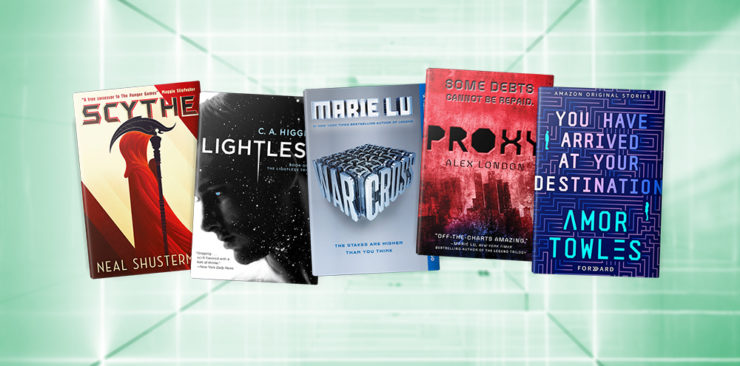One of the things that first drew to me to science fiction was its exploration of technology. I was a child when we first got dial up Internet…and then Ethernet…and then wifi. I saved up for a long time to buy my first portable CD player…and then an iPod…and then a smartphone. And now I’m at the pinnacle of my relationship with technology: feeling unfocused, anxious, and exposed, I desperately want to go backward. I preordered the Light Phone, I deactivated my personal Facebook and Twitter, and I limit the data I allow into any kind of cloud. I am warier of technology than many in my generation, and yet, in my view, not nearly as wary as I should be.
A lot of science fiction approaches technology with the same wariness I feel—the surveillance state of 1984, the soothing soma of Brave New World—but it’s not a given. A classic example of a more optimistic approach is I, Robot, Isaac Asimov’s collection of related stories about problems with artificial intelligence that are far more curious than alarmed. I crave that perspective as much as I do the suspicious one that mirrors my own, and maybe that’s why my own short stories in The End and Other Beginnings, many of which explore the introduction of new pieces of technology to a teenager’s life, are about how that technology might make us more empathetic, thoughtful, and open. I want to challenge my own perspective. I want to believe paranoia isn’t the only mindset worth embracing.
When it comes to thinking about technology, though, I think we need all kinds of perspectives in our fiction, from the fearful to the optimistic to everything in between. Here are five stories that explore a piece of futuristic technology—for better, worse, or a mix of both.
Warcross by Marie Lu
Warcross is a worldwide sensation, an alternate reality capture-the-flag game with famous players, specialized positions, and international championships—a little like an exaggerated version of pro Overwatch. I pitch this book to friends and family as being FUN AS HELL and I stand by that assessment. It’s an immensely satisfying Cinderella-ish story of Emika Chen, a bounty hunter just barely scraping by, who pulls a stunt that gets her recruited to play for one of the world’s best Warcross teams. And along the way, she discovers a much darker side of the game (and, of course, society itself). As someone who has played Beat Saber on an Oculus more than once, this technology felt close enough to grasp, but dreamlike enough to long for—we’re a ways off from a completely immersive, worldwide augmented reality system that could bring us a game like this. And this isn’t a story that preaches at you to stop playing games and go outside—it’s written with an obvious love of gaming as a given, by someone who clearly understands the appeal and has no judgment for those of us who have spent days on end lost in Hyrule. (I’m on my fourth playthrough of Breath of the Wild, so I take this very personally.) I want to play Warcross the same way I want to play Quidditch. My love is pure.
Buy the Book
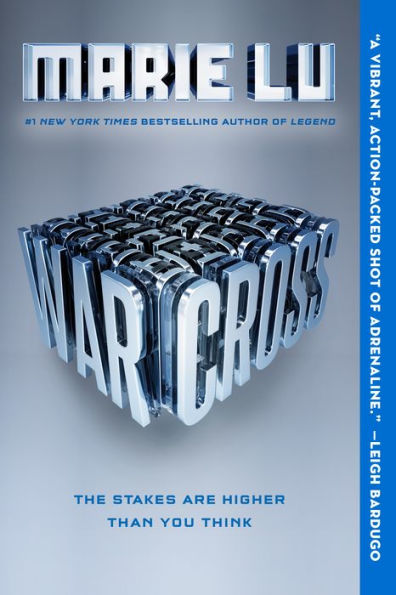

Warcross
Lightless by CA Higgins
Lightless combines two different stories on one spaceship: one is the detailed interrogation of a suspected terrorist imprisoned on the Ananke, and the other is a computer scientist’s desperate attempts to repair the Ananke itself (infected at the beginning of the book by the aforementioned suspected terrorist). The interrogation—which is tense and fascinating, by the way—takes up the majority of the book’s attention, but it would be a mistake to ignore Althea’s wrestling with the ship, particularly as it results in the birth of an AI with a wealth of personality. (And I mean that more in an oh-god-what-is-it-going-to-do kind of way than a sassy robot kind of way.) The next two books in this trilogy are concerned with the AI’s development and desires, the tension between her godlike intelligence and humanlike volatility, but Lightless is her origin story, the tale of how a virus and a computer scientist created something beyond anyone’s expectations.
Buy the Book
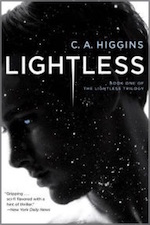

Lightless
Proxy by Alex London
Proxy is quickly pitched as a cyberpunk retelling of The Whipping Boy, in which one character (Syd) takes the punishments earned by another character’s (Knox) bad behavior, in order to work off his debts. And everyone who isn’t in the upper echelon of Proxy’s futuristic society has debts. The tech in this story is the datastream, which keeps track of you, your debts, and everything you could possibly desire, broadcasting targeted advertisements for things you mostly can’t afford. It’s infuriating—and thus perfect—to watch this system play out, the cycle of debt and desire, the rigidly maintained gap between people who have and people who want, all facilitated by the tech that lives in a person’s blood. And nothing is simple in this series. The satisfying conclusion to this first installment only leads to new and different problems in the second, the kind of complex engagement with ideas that I crave in science fiction for young readers.
Buy the Book
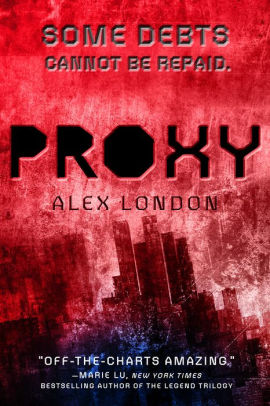

Proxy
You Have Arrived at Your Destination by Amor Towles
Full disclosure: I have a short story in the Forward collection, of which this story is a part. I found this addition to our collection’s lineup to be particularly fascinating in its exploration of “designer babies,” a sci fi trope I first encountered watching Gattaca in a high school science class. This story’s take on the technology involves a luxurious office, an advanced level of statistical analysis that can predict your child’s life to an alarmingly specific degree, and an understanding of story (your child’s life, in other words, will definitely have highs and lows, and you get to pick which lows you prefer for them). The story is centered on a father-to-be’s struggle with his own upbringing, the inherent creepiness of deciding everything for a human being who does not yet exist, and his own understanding of what gives a life value.
Buy the Book
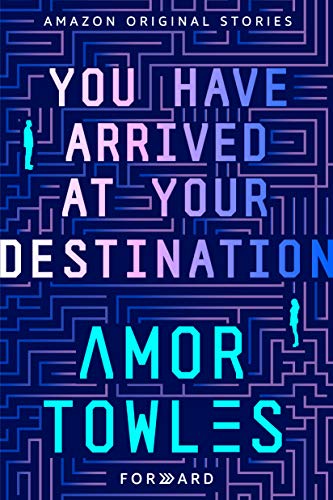

You Have Arrived at Your Destination
Scythe by Neal Shusterman
This book is as close to a “utopian” story as I’ve found, in that it conceives of a future without disease, hunger, war, or crime—and the focus is not on uncovering some kind of horrific lie or conspiracy underlying that utopian vision (yet, at least—the series isn’t finished until November!). Instead, society seems to function fairly well under the guidance of the Thunderhead, an advanced cloud technology that oversees everything, and the Scythes who—independent of the Thunderhead—keep overpopulation at bay by killing people. This system eliminates the conflict I was expecting—wherein the AI’s cold reliance on statistics results in actions that seem horrible from a human perspective—and instead, the series is free to focus on the political machinations and corruption in the Scythe institution itself. In other words, we’re the ones who are the problem, not our technology. And that’s probably the truest thing I’ve said all week.
Buy the Book
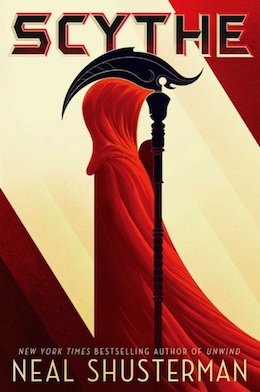

Scythe
 Veronica Roth is the #1 New York Times bestselling author of Divergent, Insurgent, Allegiant, and Four: A Divergent Collection. Ms. Roth and her husband live in Chicago. Her newest collection, The End And Other Beginnings, is out now from Katharine Tegen Books.
Veronica Roth is the #1 New York Times bestselling author of Divergent, Insurgent, Allegiant, and Four: A Divergent Collection. Ms. Roth and her husband live in Chicago. Her newest collection, The End And Other Beginnings, is out now from Katharine Tegen Books.










